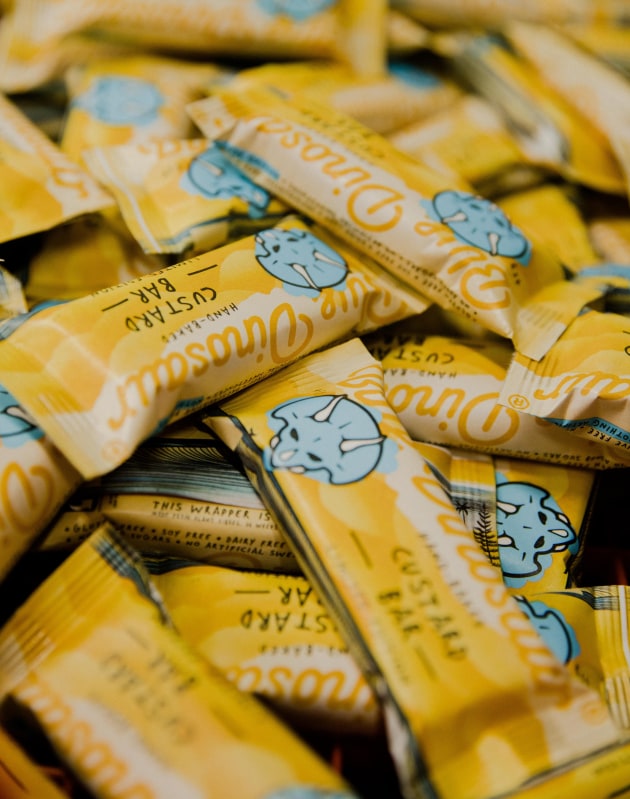Forbidden Foods becomes the first major Australian snack bar brand owner to implement home compostable wrappers, adopted for the packaging of its newly acquired brand Blue Dinosaur’s Custard Bar.
The bar wrapper is said to be 100 per cent organic, plant-based packaging, which has been tested to decompose in home compost bins in 26 weeks, leaving no toxic residues in the soil. Forbidden Foods says it plans, over time to roll out compostable packaging across all Blue Dinosaur products in its portfolio.

The adoption of home compostable packaging is on the rise as major retailers look to phase out single-use plastics and some states in Australia are banning their use entirely.
Forbidden Foods believes that the socially active customers who consume its products will be imminently demanding this from the brands they consume.
The acquisition of the plant-based snack bar company Blue Dinosaur cost $4 million, on a cash-free and debt-free basis.
“It has been a particularly momentous period for the company, as we successfully executed on our first acquisition since listing, bringing the thriving Blue Dinosaur business into our fold,” said Marcus Brown, Forbidden Foods co-founder and CEO.
“The transaction has provided the opportunity for us to accelerate our international growth, leveraging our existing e-commerce capability and Asian partnerships to enhance distribution in global markets.”
The milestone for the company came along with the release of its Q1 FY22 quarterly activities report, which showed the company’s revenue go up 30.4 per cent to $1.19 million, reflecting strong growth in export markets and repeat customer orders.
The acquisition of Blue Dinosaur has provided Forbidden Foods with immediate access to the US market, and has established relationships to export products from Australia and the US, whereby products are sold directly in-store and online, including via Amazon.
Also during this period, locally, Forbidden Foods secured product ranging of its Funch and Sensory Mill brands into Harris Farm Markets’ network of 26 stores, and also ranging into all 135+ Go Vita stores nationally.






